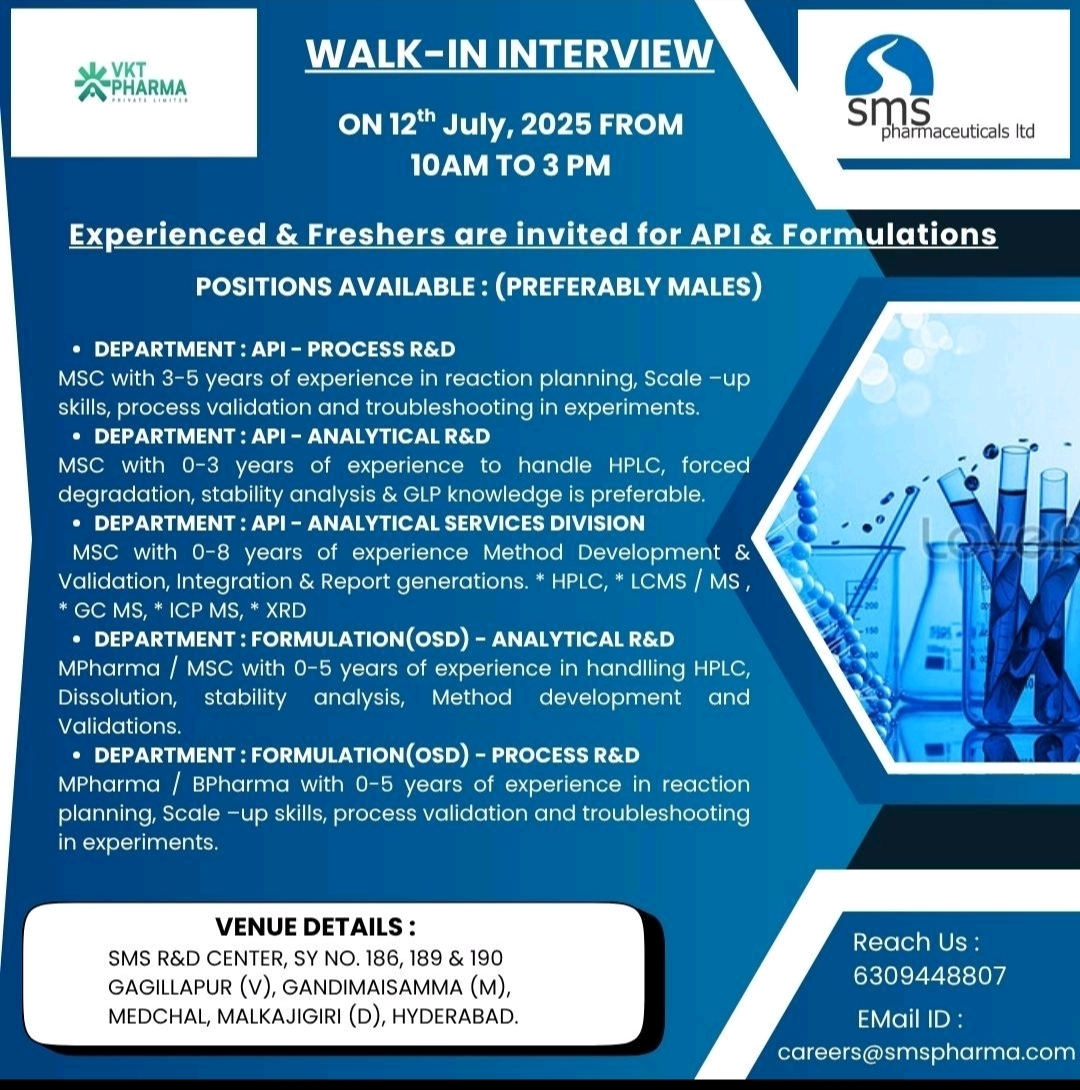🧪 SMS Pharmaceuticals Walk-In Interview – API & Formulations Jobs | Hyderabad | 12th July 2025
Are you a fresher or experienced candidate looking to build a career in API & Formulations? Here's your opportunity to join SMS Pharmaceuticals Ltd., one of the leading names in the pharmaceutical industry.
🗓️ Walk-in Interview Details:
-
Date: 12th July 2025 (Saturday)
-
Time: 10:00 AM to 3:00 PM
-
Venue:
SMS R&D Center
SY NO. 186, 189 & 190,
Gagillapur (V), Gandimaisamma (M),
Medchal, Malkajgiri (D), Hyderabad.
👨🔬 Open Positions (Preferably Males)
🔬 1. Department: API – Process R&D
-
Qualification: M.Sc
-
Experience: 3–5 years
-
Skills: Reaction planning, scale-up, process validation, troubleshooting.
🔬 2. Department: API – Analytical R&D
-
Qualification: M.Sc
-
Experience: 0–3 years
-
Skills: HPLC, forced degradation, stability analysis, GLP knowledge.
🔬 3. Department: API – Analytical Services Division
-
Qualification: M.Sc
-
Experience: 0–8 years
-
Skills: Method development & validation, report generation.
-
Instruments: HPLC, LCMS/MS, GC-MS, ICP-MS, XRD
💊 4. Department: Formulation (OSD) – Analytical R&D
-
Qualification: M.Pharm / M.Sc
-
Experience: 0–5 years
-
Skills: HPLC, dissolution, method development & validations.
💊 5. Department: Formulation (OSD) – Process R&D
-
Qualification: M.Pharm / B.Pharm
-
Experience: 0–5 years
-
Skills: Scale-up, process validation, troubleshooting.
📩 Apply Now
If you can't attend the walk-in, send your updated resume to:
📧 careers@smspharma.com
📞 Reach Us: +91 6309448807
⚠️ Note:
-
Freshers & Experienced candidates are both welcome.
-
Only male candidates preferred as per company requirements.
🔍 About SMS Pharmaceuticals
SMS Pharmaceuticals Ltd. is a renowned pharmaceutical company known for innovation in R&D and manufacturing of Active Pharmaceutical Ingredients (API) and Formulations.






